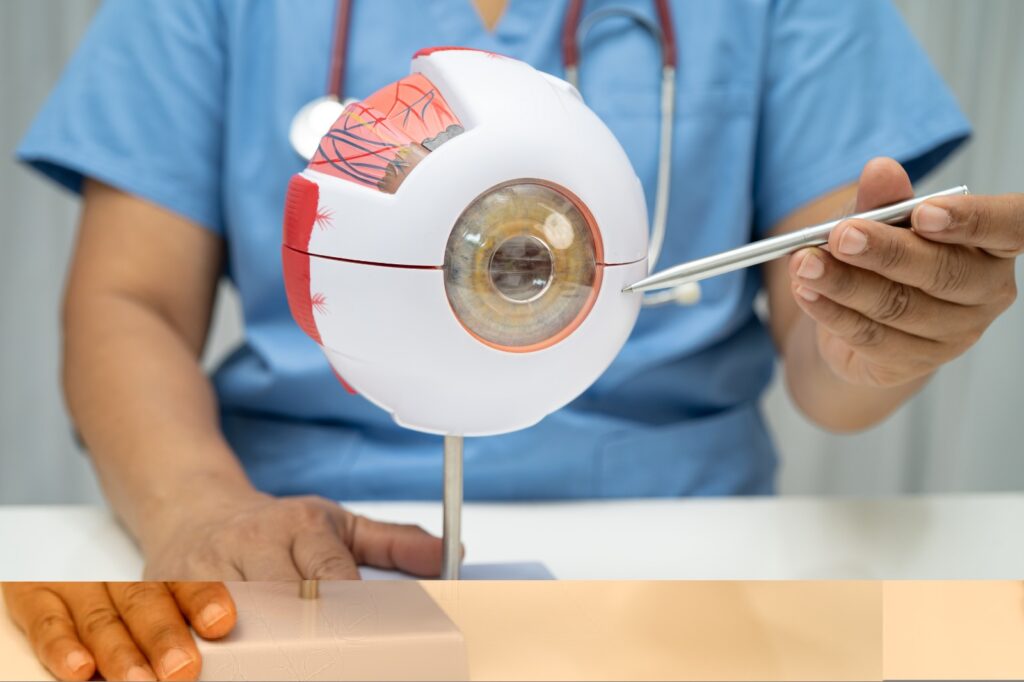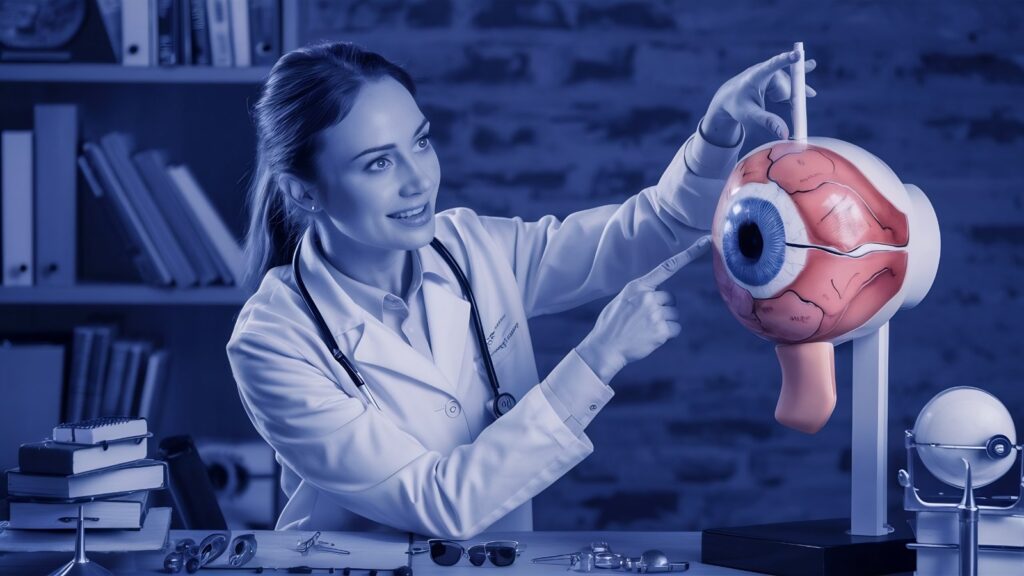Importance of routine eye examinations
- Keep eye clean always
- Get regular eye checkups
- Have balanced diet
Routine check-ups frequently neglect the importance of routine eye examinations in favour of more evident problems like blood pressure or heart health. However, the eyes reveal not only a person’s personality but also their overall health. As a medical professional, we feel compelled to emphasize the significance of routine eye exams in protecting vision and promoting overall health.
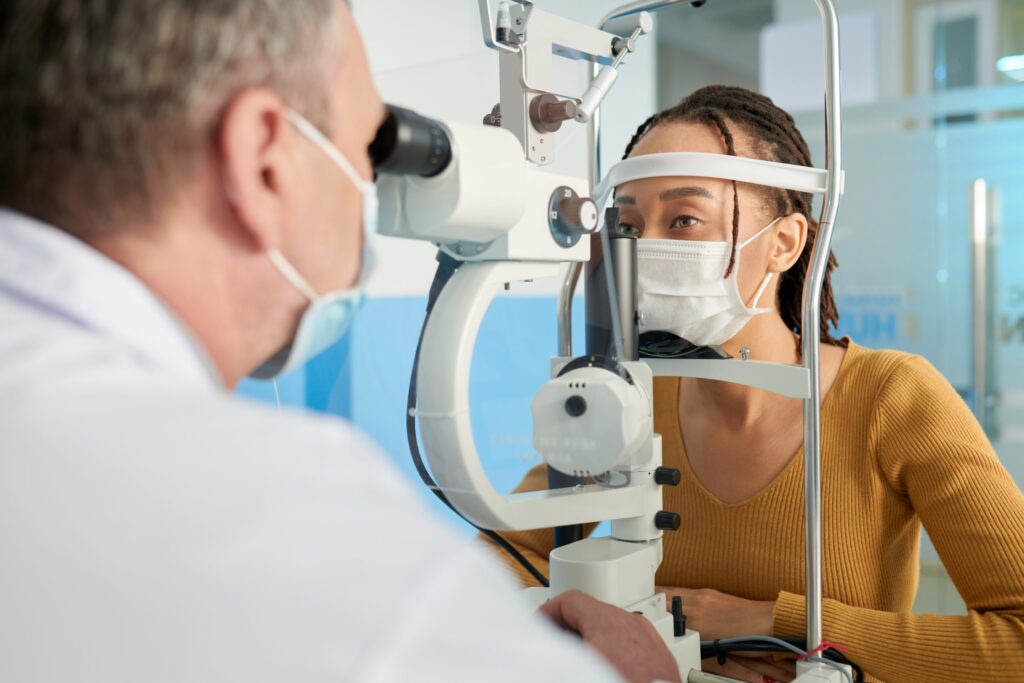
Let us understand importance of routine eye examinations:
The Relationship Between Eyesight and Overall Health: Eyes are a complex organ, and their health is intricately linked to an individual’s overall health. Numerous systemic diseases, including diabetes, hypertension, and autoimmune disorders, manifest in the eyes as early warning symptoms. Therefore, a routine eye exam is a crucial diagnostic instrument for detecting these systemic conditions before they progress to more severe stages. By detecting these conditions early, individuals are able to seek prompt medical care and avoid complications that could affect not only their vision but also their entire body.
Detection of Vision Problems Early: Myopia, hyperopia, astigmatism, and presbyopia are common visual disorders that can only be detected through routine eye exams. Many individuals may disregard mild visual discomfort as a momentary annoyance, oblivious to the fact that these issues can worsen over time and lead to more serious problems. Optometrists can accurately diagnose refractive errors and prescribe corrective measures, such as glasses or contact lenses, through routine eye examinations, thereby substantially enhancing the quality of life for their patients.
Learning and Eye Health in Children:
Routine eye exams are particularly important for adolescents. Vision issues in childhood that go undetected can cause developmental issues, impede academic progress, and even affect social interactions. Amblyopia (lazy eye) and strabismus (crossed eyes) are most effectively treated when detected early. In addition to ensuring that children have the visual acuity required for learning, paediatric eye exams contribute to their overall physical and emotional development.
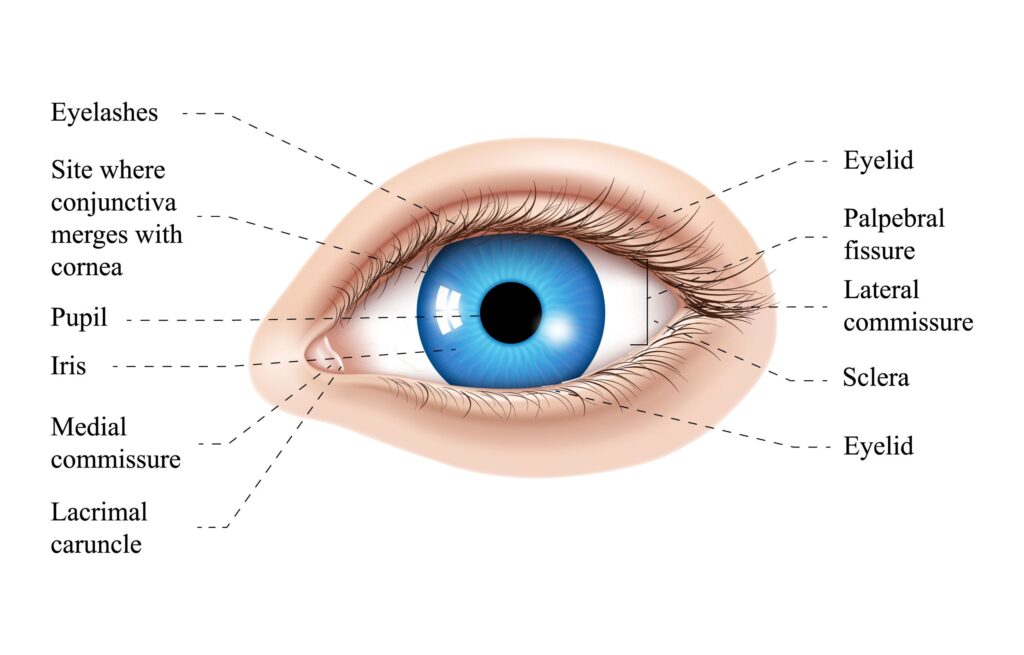

Modern Era Eye Strain Due to Digital Devices: Increased screen time from smartphones, computers, and devices has led to digital eye strain in the modern digital age. The prevalence of symptoms such as dry eyes, migraines, and blurred vision is alarming. Routine eye exams can address these concerns by providing individualized suggestions for reducing digital eye strain and enhancing visual comfort.
Glaucoma and age-related macular degeneration (AMD) are silent threats.
In their early stages, glaucoma and age-related macular degeneration (AMD) are frequently characterized by the absence of evident symptoms. Glaucoma, also known as the “silent thief of sight,” progressively causes irreversible vision loss by damaging the optic nerve. AMD affects the macula, which is responsible for central vision. Routine eye exams enable early detection of these conditions, allowing for interventions that can delay their progression and preserve vision.
Diabetes-related Retinopathy:
Even if there are no symptoms, individuals with diabetes should have regular eye exams to detect diabetic retinopathy and prevent vision loss.
The conclusion
As a medical professional, we urge individuals to recognize the critical significance of regular eye exams. These examinations extend beyond the domain of vision correction; they provide a gateway to diagnosing systemic diseases, detecting silent threats to vision, and fostering healthy growth in children. By prioritizing routine eye examinations, individuals take a proactive step towards preserving their vision, improving their overall health, and embracing a higher quality of life. Remember that your eyes are not only the windows to your psyche, but also a mirror of your overall health.

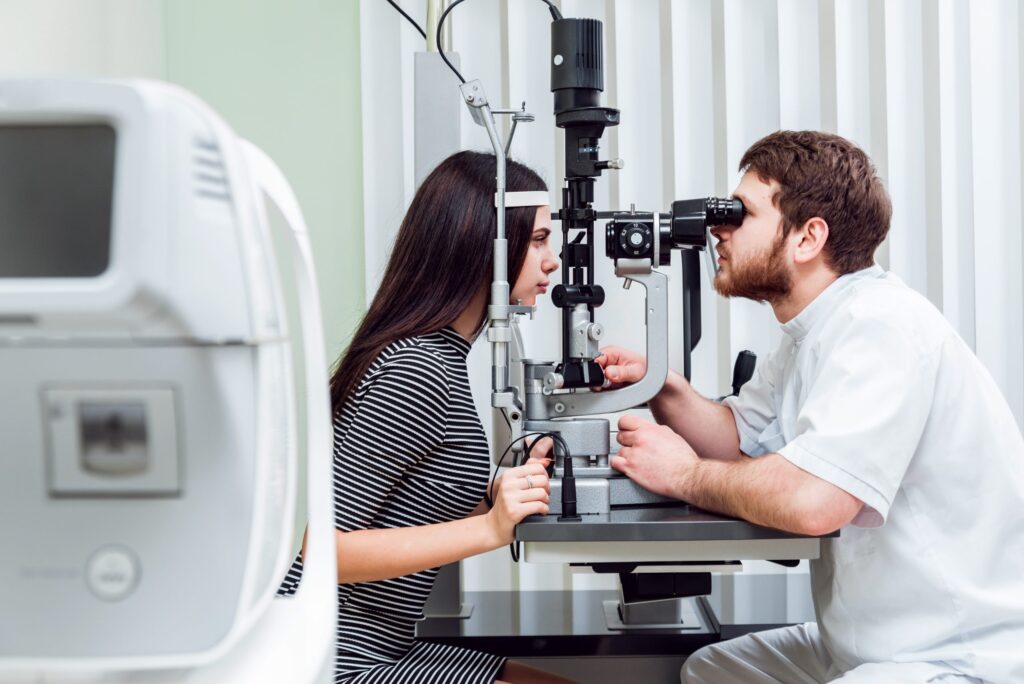
As a medical professional, we urge individuals to recognize the critical significance of regular eye exams. These examinations extend beyond the domain of vision correction; they provide a gateway to diagnosing systemic diseases, detecting silent threats to vision, and fostering healthy growth in children. By prioritizing routine eye examinations, individuals take a proactive step towards preserving their vision, improving their overall health, and embracing a higher quality of life. Remember that your eyes are not only the windows to your psyche, but also a mirror of your overall health.
Recent Post
Stop the Blur? Finding Hope Best Keratoconus Treatment in Thane
Best keratoconus treatment in Thane is now a reality for thousands of patients who previously had to cope with unclear and…
Dr. Anagha Heroor: Cornea Specialist in Thane
Cornea specialist in Thane, Dr. Anagha Heroor, has a rationale of treating patients with empathy, accurate identification, and vision restoration. Light…
Why is Macular Degeneration Surgery in Kalyan Rising?
Macular degeneration surgery in Kalyan is being recognized as a great place for advanced surgery, a condition that is becoming increasingly…


